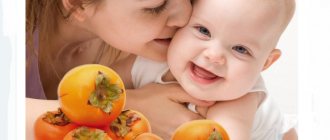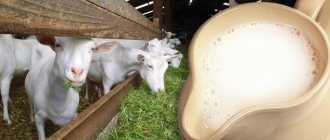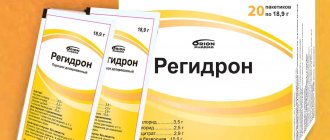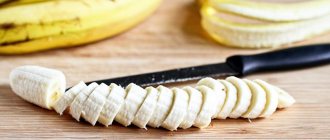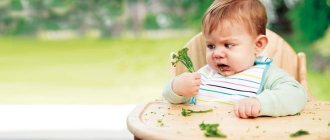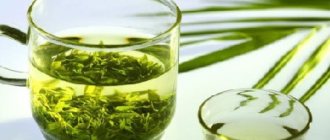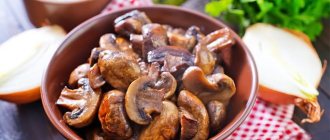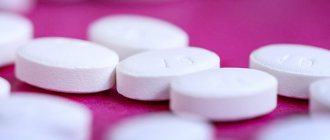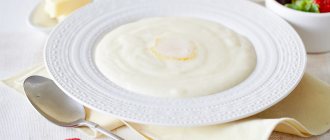Pediatricians claim that in recent years, cases have become more frequent when older children refuse to eat solid food, preferring carefully crushed purees and mixtures. That is, an increasing number of families are faced with the question of how to teach a child to chew?
The reason for such a refusal of the baby is quite understandable. Today, mothers use ready-made formulas and factory-made purees for feeding. These products are crushed very carefully, so the child does not have to make any effort to chew. Of course, it is easier for the child to follow the path of least resistance, and he does not want to chew solid food, because anyway, the mother will then give her the usual pureed food.
What are the dangers of not chewing?
Is it necessary to teach a child to chew and swallow or let everything take its course? After all, over time, the child will still be forced to master this skill?
In fact, stopping eating solid foods and chewing at an early age will have negative consequences. Chewing skills required:
- To strengthen teeth. If the baby is fed exclusively pureed food for a long time, this can cause the formation of malocclusion and other dental problems.
- To ensure normal digestion. As the child grows, his gastrointestinal tract also develops. If a child does not receive solid food, the stomach begins to become lazy. After all, if food is not chewed, then it is not saturated with saliva, and accordingly, when it enters the stomach, it does not contribute to the production of digestive enzymes. As a result, the child will face serious digestive problems in the future.
- For speech development. When chewing, the muscles that take part in the pronunciation of sounds are trained. If a child does not develop chewing skills in time, then it is not surprising that he will have problems with speech development.
In addition, if the chewing skill is not developed in time, the child may simply get used to it and not want to make an effort to cope with solid food. At 2-3 years old, a child is already quite capable of manipulating his parents, understanding that if he clenches his lips tightly, refusing to eat, or begins to shed streams of tears, then they will leave him alone and feed him the usual pureed food.
Can children eat raisins?
Raisins are dried grape fruits.
This berry itself is very amazing, after drying the beneficial properties are multiplied several times. The beneficial properties of raisins have been known since ancient times. Ego was used to strengthen the nervous system and as a good sedative. It is believed that black raisins are healthier than white ones. It is one of the healthiest types of dried fruits. Raisins are practically no different from fresh grapes, as they retain 70-80% of vitamins and 100% of microelements.
There are four types of raisins in total - light (seedless and small in size), dark (blue), light olive-colored (with one seed), large (fleshy, very sweet).
The content of the article:
When should you start studying?
It turns out that you need to start developing chewing skills very early, even before the child acquires teeth. At the age of 6-7 months, babies actively put everything into their mouth to scratch their gums. By gnawing on a special device (teether), the child gradually trains the chewing muscles, preparing for the transition to solid food.
In ancient times, to train the chewing muscles, grandmothers wrapped a piece of food (for example, an apple) in gauze and gave this bag to the baby so that he could chew it and gradually chew the food. Modern mothers have access to a more convenient device called a nibbler. Outwardly it does not look like a pacifier, but has a lid on the back into which baby cookies or other product are placed. When using a nibbler, the child crushes the product and moistens it with saliva, which contributes to the appearance of a sense of taste. Moms will only need to make sure that the mesh of the chewing part of the nibbler remains intact (the baby’s sharp teeth can damage it) and, of course, wash the device after each use. You can give your child nibbler as early as 7-9 months.
At what age can you give baby cookies?
The World Health Organization recommends introducing safe and nutritionally appropriate complementary foods to babies between 6 and 24 months of age. Its introduction is due to the inadequacy of breast milk to meet the changing nutritional needs of infants as they grow older. There is also a slightly different approach to the question of how many months you can give your baby foods from the family diet. Thus, according to the Union of Pediatricians of Russia, a normally developing child who is breastfed begins to feel the need for additional food products from 4–6 months (for bottle-fed children, the time limits shift - 3.5–4 months, and we are talking about in particular, about introducing juices and then fruit purees).
Many pediatricians recommend introducing a child to sweets only after the first year of life. Such recommendations usually do not raise questions; we are all accustomed to the postulate “sweets are harmful.” However, objectively, cookies (we are talking about special ones for children) can be included in the diet from 5–6 months. Of course, it is allowed to be given only if the child does not have an allergy, including to gluten.
How to teach?
The transition to solid foods should be gradual. If a child is fed with ready-made factory-produced foods, then purees and cereals should be selected according to age. Most well-known manufacturers divide their products into age groups. That is, a 10-11 month old child should not be fed porridge intended for six-month-old babies.
Products for older age categories differ in consistency; they are thicker and contain grains and lumps. This will prepare the baby well for the transition to the common table.
If the mother prefers to prepare the baby’s food herself, then you need to gradually reduce the degree of grinding, working less with the blender. After a year you will need to use the blender less often. For example, do not puree boiled vegetables, but chop them with a fork, and grate an apple.
But there is no need to rush with meat; this product can be given in pieces only after three years. Meat requires more thorough chewing, so a small child will not cope with the task. For children of this age, you should prepare dishes from minced meat - meatballs, meatballs, etc.
Useful properties of raisins
Raisins not only contain large quantities of potassium, but also elements such as sodium, phosphorus, magnesium, calcium, and iron. It also contains vitamins B1, B2, B5, which improve the functioning of the nervous system and improve sleep.
Raisins are recommended to be consumed for diseases such as fever, anemia, diseases of the digestive system and kidneys. It contains a sufficient amount of proteins and fats that are necessary for the human body, especially for those who constantly do physical activity. Doctors often recommend that athletes include dried fruits with honey and nuts in their diet.
Raisins contain a large amount of B vitamins, as well as microelements such as iron, magnesium and boron, so they are recommended for pregnant women. Calcium and iron, which raisins contain in sufficient quantities, help fight osteoporosis and iron deficiency anemia in pregnant women. The benefits of raisins are really great for nursing mothers. Mixed raisins with nuts are used to increase lactation.
The benefits of raisins
Thanks to the large number of vitamins and microelements contained in raisins, it has many beneficial and medicinal properties.
- Weight gain. This product is recommended for use by athletes or those who want to change the structure of their body. It contains large amounts of fructose and glucose, which saturate the body with glucose; it is also recommended for people doing heavy physical work.
- Anemia. The benefits of raisins include a large amount of iron and B vitamins, which promote blood formation.
- Sexuality. It is effective in arousing and stimulating libido. It contains the amino acid arginine, which is already known to be used in the treatment of erections. Eating raisins gives a lot of energy, so it is recommended to use them for sexual weakness.
It is one of the healthiest types of dried fruits. It is practically no different from fresh grapes, as it retains 70-80% of vitamins and 100% of microelements. There are four types of raisins in total.
The harm of raisins lies in their calorie content
Everyone knows that grapes themselves are very high in calories. And raisins contain 8 times more sugar than grapes. You should always know when to stop when consuming any dried fruit. You need to carefully select raisins before buying, since the benefits and harms of raisins depend on their quality. Before use, you need to soak it for half an hour and then rinse well. Raisins are not recommended for people with stomach ulcers. We also wrote an article about canning grapes for the winter.
Is it possible to give raisins to a child?
Raisins, like other dried fruits, are very healthy; they contain a large amount of vitamins. It is also available all year round and you can take it with you on your outings. The child will not feel hungry, and it can be a good alternative to sweets.
As is already known, raisins contain fiber and iron; they improve immunity well, so they are recommended for weak children. It is better to give a small child raisins cut into pieces so that he does not choke. If the child chews food well and knows how to hold his back, then raisins can be given whole. Don't forget to brush your child's teeth after consumption as it contains a lot of sugar.
Treatment with raisins
In folk medicine, raisins are highly valued due to their medicinal properties. It is used in the treatment of various diseases such as cough, cold, bronchitis, heart pain. Doctors recommend it to strengthen the body, especially after suffering serious illnesses.
Raisins for coughs, bronchitis, colds
- 40 grams of washed raisins need to be soaked in cold water for 50 minutes. Then the water is drained, the soaked raisins should be eaten before bed, be sure to wash it down with hot milk.
- Pour boiling water over 100 grams of raisins and leave for about 10 minutes. Pour the infused liquid into a glass and add 1 tablespoon of onion juice to it. The resulting drink should be drunk during the day, within 30 minutes. before every meal. This procedure lasts until complete healing.
Raisins for the heart
Raisins are very good for the heart, they strengthen the heart muscle, so they are recommended to be consumed according to the following scheme: 2 kg of seedless raisins should be thoroughly washed and dried and divided into two parts. Take the first kilogram of raisins exactly 40 pieces, always half an hour before breakfast. After you eat the first half, the second kilogram of raisins should also be consumed before breakfast on an empty stomach, only daily reducing the number of berries eaten by 1 piece. For example, on the first day you eat 40 raisins, on the second day 39, etc.
Composition and calorie content of raisins
Raisins are rich in carbohydrates, fiber, sugar, organic acids and contain protein and fat in small quantities. It also contains a huge amount of vitamins such as A, vitamins B, P, C, E, K; mineral – potassium, calcium, magnesium, copper, iron, phosphorus, chlorine.
The calorie content of raisins is very high, 100 g contains about 283 kcal, so it is not recommended to abuse them. Athletes should eat raisins after long grueling workouts or people who do hard physical work, as they contain glucose and fructose, which provide the body with energy.
Raisins for weight loss
Having become familiar with the calorie content of raisins, the thought comes to mind that raisins and diet are incompatible things. But don’t rush to conclusions, it has been scientifically proven that the substances contained in raisins contribute to the breakdown of waist fat. Raisins in small portions are good for snacking, as they quickly satisfy the feeling of hunger.
For weight loss, it is recommended to eat blue or dark raisins. Doctors assure that blue raisins help increase the amount of hemoglobin in the blood and strengthen the immune system. For weight loss, raisins should be included in the daily menu and used as a snack between breakfast and lunch or lunch and dinner. If you want to be healthy and replenish your body with vitamins and microelements, then 30 g of raisins should be eaten at breakfast, or you can add it to porridge.
A prepared infusion of raisins and hay also contributes to weight loss. You will need 200 g of raisins and 200 g of hay, pour each ingredient separately with 1 liter of boiling water. After cooling, strain both infusions and combine in a large container, then add 200 milliliters of Holosas. The infusion should be taken half an hour before meals for three weeks.
Raisin decoction: benefit or harm? Video
Video about a miraculous drink - raisin decoction, which ranks one of the first places among laxatives. Can it be given to a child without the advice of a doctor?
Can children have raisins photo?
Read other articles about children, their life, upbringing, and development.
If you liked the article - Can children eat raisins, then you can leave a review or talk about it on social networks.
And also see other articles written especially for you:
Smile with your child!
Save and share information on social media. networks:
What to do if the moment is missed?
If a 2-year-old baby categorically refuses to chew and eats only thoroughly pureed food, then you need to act immediately.
First of all, you need to make sure that there are no physiological reasons that prevent you from eating solid foods. Disturbances may be associated with malfunctions of the gastrointestinal tract or diseases of the throat or oral cavity. Therefore, mothers should not neglect clinical examinations, which, as a rule, reveal the reasons that interfere with the development of chewing skills.
Recipes for raisin drinks for babies
Raisin decoction can be prepared either from dried fruits alone or using additional ingredients. According to the classic recipe, the drink is prepared as follows:
- rinse dried fruits in plenty of water, sort through, remove spoiled berries
- pour in purified water, bring to a boil in an enamel pan and simmer over low heat after boiling for 15 minutes (covered, this will preserve more vitamins)
- let sit for 30 minutes
The drink can be given to the baby warm, starting with a teaspoon. It is not recommended to store the decoction; it is better to make it immediately before use. The drink is also useful for the mother of a newborn while breastfeeding.
Compote takes longer to cook than broth, but also has a richer taste. It is prepared in the same way. Cooking time increases from 15 minutes to an hour (depending on what type of raisins are used: light ones can be cooked longer for greater flavor).
Compote made only from this type of dried fruit is well suited for infants up to one year old. A child over 12 months old can be given compote with a small amount of dried apricots. It gives the drink its characteristic sweetness and enhances the laxative effect. Sugar should not be included in such recipes (preferably until the child is three years old). The sweetness of dried apricots and raisins is enough for a child. If desired, you can add a little honey. Compote can also be prepared with dried apples and prunes. For additional flavor, you can use blackcurrant leaves.
Raisin drinks are good for babies. They must be given to children in small doses, as there may be an allergic reaction and individual intolerance. At what age they can be included in the menu depends on the child’s health condition and the characteristics of his body. It is advisable not to use raisins in the diet of a newborn until three months.
How to stimulate appetite?
Sometimes the reason for refusing to eat is not a reluctance to eat solid food, but the baby’s poor appetite. If this is not a sign of ill health, then simple measures will help to cope with the problem.
To stimulate a child’s appetite, it is worthwhile to fortify his diet. For this:
- add rosehip syrup to compote or tea (instead of sugar);
- you can make tea from rose hips;
- instead of juice from bags, give your child homemade compote, which must include prunes and a small amount of fechnel seeds (1 teaspoon per liter of finished compote);
- increase the duration of walks. The child should be active while walking: run, jump, climb, and not sit sedately on a bench;
- You should exclude all snacks, do not allow you to drink juice or milk outside of meals, this is food, not drink. Water or unsweetened compote is best to quench your thirst. Juices contain sugar, which can suppress your appetite.
In addition, you must ensure that the child has regular bowel movements. If you have problems with this, you should consult your doctor. As a rule, it is enough to change your diet by introducing more vegetables. You can also use glycerin suppositories (a quarter), they are harmless than an enema.
Harmful cookies
Speaking about the benefits of the product, one cannot help but mention the negative aspects of its introduction into complementary foods.
- Cookies can cause allergies. Even a specialized product cannot be called completely hypoallergenic. Therefore, it must be given extremely carefully. If you bake cookies for your toddler at home, you cannot use margarine and a number of other ingredients: they can harm the child’s health. For the same reason, it is prohibited to give regular store-bought cookies. It is prepared using additives that are contraindicated for babies. Cookies are high in calories, so avoid giving them to overweight children. The product, even a specialized one, is sweet, so no one ruled out the risk of harming children’s teeth.
- Special children's cookies contain easily digestible carbohydrates, vegetable proteins, fiber, vitamins, and minerals (for example, calcium, iron, iodine). Of course, its composition is not comparable to porridge or vegetable and fruit purees, but it also makes a useful contribution to the development of the child’s body.
Advice from Dr. Komarovsky
Well-known pediatrician Evgeny Komarovsky gives the following advice to parents who want to teach their child the process of chewing:
- Mom or dad will have to show some acting skills, explaining to the child why today instead of the usual puree for lunch there is a thick dish. For example, you can say that the store no longer sells canned puree or come up with something else that justifies the need to “master” a new food.
- It is worth involving the child in chopping food in a plate, let him try to mash pieces of boiled vegetables with a fork. Of course, you need to be prepared that some of the food will end up on the table or even on the floor, but children usually eat food that they “prepared” themselves with great pleasure.
- You can offer your child something tasty in a piece - for example, a slice of marmalade or marshmallow.
- It is worth using the power of example. Visit yourself or invite guests with children. Seeing that his peers eat food in pieces, the child himself may want to quickly acquire the chewing skill.
So, to teach your baby to chew solid food you will have to be patient and persistent. It is best to start training at an early age, as soon as the child has teeth. However, even at a later age you can quite successfully achieve your goals. It is important that the process of eating does not turn into a punishment for the child; no matter what, you need to maintain a friendly and even attitude. You shouldn’t be angry with your child, because it’s not his fault that he doesn’t succeed in everything right away.
The benefits of specialized cookies
- Special children's cookies contain easily digestible carbohydrates, vegetable proteins, fiber, vitamins, and minerals (for example, calcium, iron, iodine). Of course, its composition is not comparable to porridge or vegetable and fruit purees, but it also makes a useful contribution to the development of the child’s body.
- Cookies are also necessary for proper jaw development. It helps develop chewing skills and teaches you to swallow chunky food. Due to the fact that special cookies are easily turned into puree under the influence of milk or saliva, they are considered the safest option for solid food.
- Cookies, as mentioned above, help relieve itching in the gums during teething.
